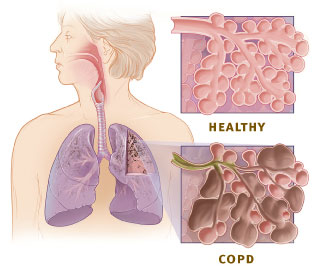1 OATS
Fiber soluble or insoluble, help us in many ways to keep off some of the deadly conditions; constipation, colon cancer, rise of bad cholesterol and growth of unwanted bacteria in gut.
Oats contain beta-glucans, a soluble fiber that can help lower bad cholesterol, low-density lipoprotein (LDL). It contains antioxidants, especially avenanthramides that protect against atherosclerosis (the build-up of plaque on artery walls).
2. CHERRIES
Cherries are useful in combating gout and arthritis. They are rich source of the antioxidant anthocyanin.
In a trial, it was noticed that the excretion of uric acid increased by 60 per cent in volunteers who took 200g of cherries at breakfast.
3. ALMONDS
| Almonds (Photo credit: Shelby PDX) |
It has been seen that adults eating 60g of almonds daily for four weeks showed a nine per cent reduction in blood-sugar.
In another study, adults who replaced a third of their usual sources of fat with almonds noticed reduction of level of bad cholesterol (LDL) by six percent and increase in HDL (Good Cholesterol) level by six percent.
4. OILY FISH
Most of the oily fishes contain Omega 3 fats that can help in improved function of heart with a reduced risk of heart attack.The best sources of omega 3 fats are salmon, mackerel, tuna, sardines and herring.
5. SOY
Isoflavones in soy beans have been linked to lowering cholesterol, increasing bone density in post-menopausal women and improving male fertility.
6. TOMATOES
Tomatoes are an excellent source of the antioxidant lycopene. They offer a degree of protection against the formation and spread of cancer cells as well as protecting arteries from atherosclerosis. Researcher have shown that drinking 150ml of tomato juice after 20 minutes of exercise offers protection against prostate, lung and stomach cancers; and heart disease.
7. WHOLE MILK
Whole milk can help combat the reduction in muscle mass; calcium present in it is essential for bone health as well as assisting blood-clotting.Whole milk contains 118mg of calcium per 100ml. The daily recommended intake of calcium is about 1,000mg for men and 1,200mg for women. Eating green vegetables, nuts and seeds in addition to whole milk is an effective way to achieve this.
It has been seen that the dietary calcium is better than calcium supplementation for health: and in fact supplementation may have adverse effect on heart and muscle health.
8. CHICKEN
This is a great source of protein – one 200g skinless breast provides 60g. Helps contribute to effective weight-management and muscle-building.Chicken soup might also be able to combat the common cold. As a skinless chicken breast contains only 1g of saturated fat, it is a useful alternative to red meat.
The original article published in the Dailymail UK can be accessed here.
...
Click here to Subscribe news feed from "Clinicianonnet; so that you do not miss out anything that can be valuable to you !!
...







